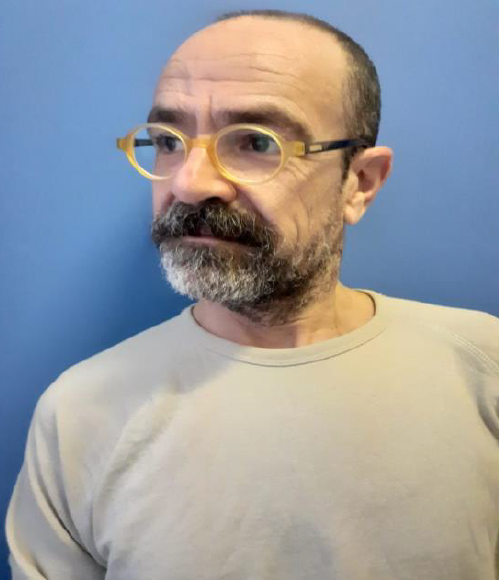
INTERVIEW TO:
DAVID PARICIO Y CLARA MARTÍNEZ

Anthropologist and Social Work professor at the University of Barcelona. Member of the “Comité 1 de Diciembre” and the “Salud Sexual de Barcelona” strategy promoting group.

Graduated in Political Science from the Pompeu Fabra University. Author of: “De infundir miedo a difundir placeres”, “El placer de romper la norma” o “Cuerpos ilimitados, placeres infinitos”.
- In your workshop you will address the importance of considering sexual and gender diversity as variables in actions related to sexual health promotion. Based on your professional experience, do you think Spanish institutions and associations are already doing something in this sense? Or is there still a lot of work to be done in this matter?
Some legislative progress has been made and there are associations developing innovative projects. However, there is still a long way to go. For us, one of the greatest challenges is to free ourselves from heteronormative censorship, to dismantle the social prescriptions around identity, the body, and sexuality, and to expand the fields of desire and pleasure to promote freer and healthier experiences of sexuality for everyone. In this sense, incorporating the perspective of sexual and gender diversity in sexuality promotion can be a transformation that helps to make sexualities visible beyond the coitocentric and biologist-reproductive point, loaded with violence and sexist stereotypes.
- Do you think that our health system, as it is currently structured, pays enough attention to this inclusive and gender perspective?
According to various studies in this field, LGBTI people report problems in health care centres, mainly linked to discriminatory treatment due to their gender identity or their sexual preferences, such as not receiving adequate gynaecological or urological care, disrespect for the gender identity of trans* people or the violation of the Reproductive Rights of lesbians. Another recent report from the Community of Madrid highlights that the health problems affecting the LGBTQI population do not derive from having a trans* gender identity or a different sexual orientation other than heterosexual, but from the difficulties that the current health model has in integrating diversity as a central and not a secondary issue.
3. Although hard work is being done to eliminate it, nowadays there is still a stigma about people with HIV. However, it is also a reality that the context, the information, and the moment in which we find ourselves is different from a few years ago. As professionals who are in direct contact with this group, have you seen an evolution in the barriers associated with stigma for these people? In other words, how do you think they have changed, if they have, over time? What do you think these changes could be due to?
The response to serophobia, which is how the stigma towards people with HIV is known, continues to be the great pending issue in the response to HIV.
This serophobia affects the daily lives of people with HIV in all areas: affective and sexual relationships, health care, workplace, and family relationships and, ultimately, limits the possibilities of being able to live freely and with the guarantee of rights regarding their HIV-positive status. Furthermore, serophobia is related to other types of violence, such as LGBTI-phobia, racism or capacitism.
As Oriol Romaní says, “mixing stigma and health is like wanting to mix water with oil” and here lies the importance of working beforehand on the situations of discrimination that affect the lives of people with HIV, if we want the response to HIV to be effective both in terms of care for HIV-positive people and in terms of preventing new infections.
- In your workshop you are going to address aspects such as empowerment or intersectional feminism. Could you tell us something about how we can work on empowerment from an intersectional feminist perspective? Why is it important to modify STI prevention models to a more inclusive and intersectional one?
Many times, sexual health promotion is approached from a health paradigm, focusing on two risks: sexually transmitted infections and unplanned pregnancies. Other risks, such as sexual violence, LGBTI-phobia violence, the criminalization of women’s sexuality, the exclusion of people with functional diversity from the sexuality world, or racist stereotypes present in the sexual sphere, are omitted.
The intersectional feminist perspective helps us to see how people’s health and sexual rights are affected by social and structural inequalities. It leads us to an ethical position that is related to social and erotic justice.
This perspective places us, as professionals, in the position of constantly questioning ourselves about our own conceptions of sexuality, health, and social prescriptions. Furthermore, it places people with whom we work as protagonists with agency and resilience possibilities, that is, with possibilities to act in adverse situations in which there is some type of social subordination and with the capacity to transform them.
TO GO DEEPER INTO THESE INTERESTING TOPICS, YOU CAN ATTEND THE WORKSHOP THAT WILL BE OFFERED ON JUNE 18 th: